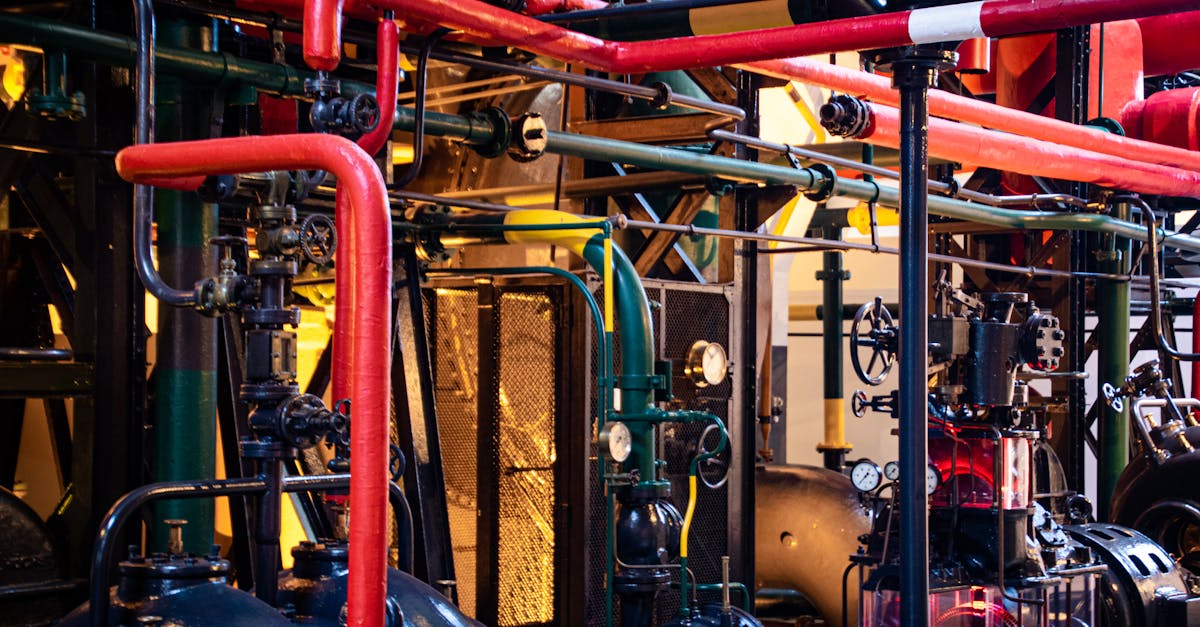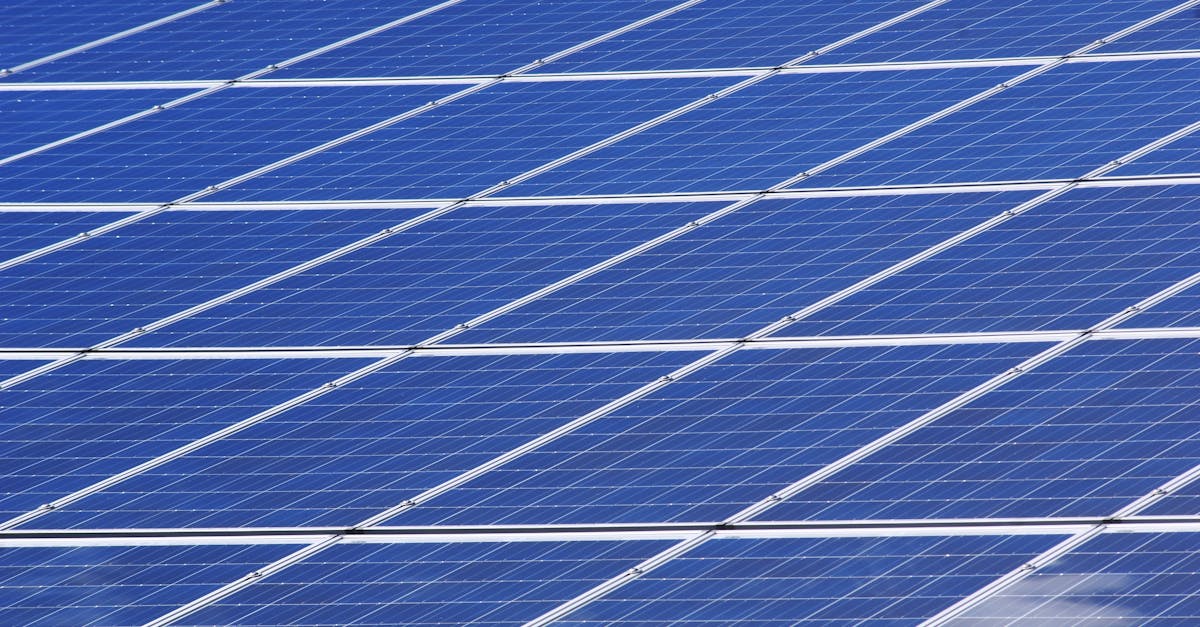Empowering Business Success through Sustainable Heating Solutions

Are you tired of high energy costs and inefficient heating systems? It’s time to consider a game-changing shift in the commercial sector: trading traditional boilers for cutting-edge heat pump technology. In this comprehensive guide, we will explore the strategic advantages and practical considerations for businesses looking to make the transition to commercial heat pumps. From understanding the evolution of heating systems to maximizing operational efficiency, we will equip you with the knowledge needed to make an informed and encouraging decision for your business. Whether you’re driven by sustainability goals or seeking long-term cost savings, this guide will help you navigate the exciting world of commercial heat pumps with confidence and clarity.
1. Understanding the Transition
Thank you for reading this post, don't forget to subscribe!
The transition from traditional boilers to commercial heat pumps marks a pivotal shift towards a more sustainable and efficient future for businesses. With a growing awareness of environmental responsibility and the pressing need to reduce carbon footprints, this evolution presents an encouraging opportunity for companies to embrace cleaner, greener energy solutions while reaping substantial long-term benefits. Embracing this transition isn’t merely a change in equipment; it’s a strategic move towards a more sustainable and cost-effective future.
Commercial heat pumps represent a cutting-edge solution that offers a range of advantages, including reduced energy consumption, lower operational costs, and a significantly smaller environmental impact. These systems are designed to operate with exceptional efficiency, ensuring that businesses can simultaneously reduce their carbon emissions while enjoying financial savings. It’s not just a change in technology; it’s a fundamental shift in the way businesses can contribute positively to the environment while enhancing their profitability.
By exploring this transition and understanding the long-term impact, businesses gain the ability to not only meet environmental targets but also shift towards greater energy independence. This promising evolution empowers companies to align their operations with sustainable practices, all while enhancing their reputation and bottom line. The move from traditional boilers to commercial heat pumps isn’t just about heating – it’s about fostering a brighter, more sustainable future for businesses and the world at large.
The Evolution of Heating Systems
The evolution of heating systems has seen a remarkable journey, advancing from traditional heating methods to more sustainable and efficient technologies. Commercial heating systems have undergone a significant transformation over the years, with the emergence of heat pump technology leading the charge towards a greener and more economically sound future. This shift represents an encouraging leap forward, offering businesses enhanced performance, reduced environmental impact, and long-term cost savings.
The history of commercial heating systems is defined by a progression towards innovation and sustainability. From the early days of inefficient and carbon-intensive heating methods, today’s businesses have the opportunity to embrace heat pump technology, which harnesses renewable energy sources to provide reliable heating and cooling. This advancement reflects an industry-wide commitment to not only meeting current energy demands but also fostering a future that is more responsible and economically advantageous.
Exploring the emergence of heat pump technology unveils a promising narrative of progress and sustainability. These systems have come to the forefront as a result of efforts to mitigate climate change, reduce reliance on non-renewable energy sources, and enhance overall operational efficiency. As businesses delve into this evolution, they’re not only investing in heating solutions; they’re embracing a strategic change that can concurrently benefit their bottom line while contributing positively to the environment and the community at large.
Advantages of Heat Pumps
The advantages of heat pumps extend far beyond mere functionality, offering businesses a transformative approach to heating and cooling that is both sustainable and cost-effective. Embracing commercial heat pumps presents an encouraging opportunity for companies to significantly reduce their carbon footprint while enjoying substantial financial savings. By highlighting the economic and environmental benefits of these systems, businesses can make an informed leap towards a more sustainable and prosperous future.
One of the most compelling advantages of commercial heat pumps is their remarkable energy efficiency. These systems are engineered to leverage renewable energy sources, resulting in significantly lower operational costs and reduced reliance on non-renewable resources. By adopting heat pump technology, businesses not only contribute to environmental preservation but also position themselves for long-term financial gains through reduced energy expenses.
Additionally, the versatile and consistent performance of heat pumps enhances the overall comfort and operational efficiency of commercial spaces. With the ability to provide both heating and cooling, these systems offer a comprehensive and reliable solution for businesses, ensuring a comfortable environment for employees and customers while optimizing energy usage. By leveraging the sustainable and cost-effective benefits of commercial heat pumps, businesses can pioneer a path towards a greener and more economically resilient future, setting a compelling example for sustainable business practices.
2. Assessing Business Needs

Assessing business needs is the first step towards integrating effective heat pump systems, and it is a critical phase in the transition towards sustainable and efficient heating solutions. Understanding the commercial requirements for integrating heat pumps presents an encouraging opportunity for businesses to align their energy usage with their specific operational demands while reaping the benefits of reduced environmental impact and cost savings. By conducting a detailed assessment, companies can tailor their approach to fit their unique circumstances, ensuring a smooth and effective integration of heat pump technology.
Energy demand analysis forms the cornerstone of this assessment, allowing businesses to gain insight into their precise heating and cooling needs. By examining historical energy consumption patterns and future requirements, companies can determine the optimal capacity and configuration for their heat pump systems, effectively maximizing efficiency and minimizing waste. This approach not only ensures that businesses meet their operational requirements but also sets the stage for a more sustainable and cost-effective energy usage model.
Simultaneously, understanding the financial implications associated with the transition to commercial heat pumps is key to making an informed investment. By evaluating potential savings and available incentives, businesses can confidently chart a course towards a more sustainable future, capitalizing on both economic and environmental benefits. Embracing this stage of assessment empowers businesses to make well-informed decisions, setting the foundation for a successful integration of heat pump technology that aligns with their commercial needs.
Energy Demand Analysis
Conducting an energy demand analysis is a proactive and empowering step for businesses seeking to optimize their heating and cooling infrastructure. By delving into this assessment, companies gain a comprehensive understanding of their energy requirements, allowing them to tailor their approach towards efficient and sustainable solutions, such as commercial heat pumps. Through this process, businesses not only optimize their energy consumption but also position themselves for long-term financial savings and environmental stewardship.
This analysis involves scrutinizing historical energy usage patterns, peak demand periods, and specific heating and cooling needs within the business. By delving into these details, companies can effectively determine the capacity and configuration required for their heat pump systems, ensuring that they are finely tuned to meet the exact demands of the business. This meticulous approach not only guarantees operational efficacy but also lays the groundwork for a more environmentally conscious and economically advantageous energy model.
Moreover, the insights derived from this analysis provide businesses with the knowledge needed to implement targeted strategies for energy optimization. By identifying areas of excessive energy consumption or inefficiency, companies can make informed decisions that drive down costs and minimize waste. This not only streamlines operational expenses but also contributes to a sustainable and responsible approach to energy usage, demonstrating a commitment to both environmental stewardship and financial prudence.
Financial Considerations
Understanding the financial implications of transitioning to commercial heat pumps is an essential step that offers businesses a compelling vantage point for long-term success. By delving into this assessment, companies can gain a comprehensive understanding of the potential savings and economic benefits associated with embracing sustainable heating solutions. This approach not only enables businesses to make informed decisions but also empowers them to seize the financial advantages that accompany the transition to heat pump technology.
Businesses can assess the financial considerations from multiple perspectives, including initial investment costs, operational expenses, and potential long-term savings. While the upfront investment in commercial heat pump systems may seem significant, it’s crucial to recognize the substantial returns that follow. These systems offer remarkable energy efficiency, translating into lower operational costs and reduced reliance on non-renewable energy sources. By evaluating the total cost of ownership, including maintenance, operational, and energy expenses, businesses can effectively gauge the financial viability and long-term gains associated with heat pump integration.
Moreover, exploring available incentives, rebates, and financing options further enhances the financial outlook for businesses considering the transition. By capitalizing on grants and incentives for sustainable energy solutions, companies can effectively offset initial investment costs, making the transition more economically feasible. Additionally, the potential for increased property value, improved marketability, and favorable public perception further underlines the sound financial rationale for businesses to embrace heat pump technology.
3. Selecting the Right System
Choosing the right commercial heat pump system for business applications is an exciting opportunity for companies to optimize their energy usage while embracing sustainable and efficient heating solutions. As businesses embark on this journey, exploring the capacity, efficiency, and environmental impact of various systems promises to deliver a tailored, reliable, and economically advantageous heating and cooling solution. By conducting a thorough analysis and evaluation, companies can confidently select a system that aligns with their operational demands, contributing to both sustainability and long-term cost savings.
In the process of selecting the ideal system, understanding capacity and efficiency stands as a pivotal consideration. Businesses need to accurately assess their heating and cooling needs, determining the required capacity to ensure seamless performance across all operational scenarios. Furthermore, evaluating the efficiency metrics of different systems offers companies a clear perspective on energy usage, operational costs, and environmental impact, allowing them to make an informed decision that aligns with their sustainability objectives and financial aspirations.
Environmental impact holds significant weight in the decision-making process, as businesses increasingly seek to minimize their carbon footprint and ecological impact. By scrutinizing the environmental benefits of different heat pump systems, companies can choose a solution that not only meets their operational needs but also facilitates a positive contribution to environmental preservation. This shift towards environmentally responsible heating and cooling solutions portrays a business as a responsible, forward-thinking entity committed to sustainable practices and preserving the planet for future generations.
Capacity and Efficiency
Understanding the importance of capacity and efficiency is pivotal when selecting the right commercial heat pump system, shaping the foundation for a reliable, sustainable, and cost-effective heating and cooling solution. Capacity considerations involve a detailed assessment of a business’s heating and cooling needs, ensuring that the selected system can effectively meet demand across all operational scenarios. By delving into this analysis, companies gain the assurance that the chosen system aligns with their specific requirements, promoting operational continuity and comfort while optimizing energy usage.
Efficiency plays a central role in the decision-making process, offering businesses a clear understanding of the energy usage, operational costs, and environmental impact associated with different heat pump systems. A keen focus on efficiency empowers companies to make informed decisions that not only reduce their carbon footprint but also contribute to substantial long-term financial savings. By selecting a system with exceptional energy efficiency, businesses position themselves for a sustainable future, fostering a robust balance between operational efficacy, environmental stewardship, and economic prudence.
Moreover, the combination of capacity and efficiency underscores a comprehensive approach towards sustainable business practices. By selecting a system that effectively balances capacity with high efficiency, companies pioneer an energy-conscious journey that not only meets their current operational needs but also positions them for future growth and adaptability. This approach showcases a commitment to sustainable energy practices, economic responsibility, and environmental stewardship, reinforcing a business’s position as a forward-thinking and conscientious entity dedicated to long-term success and positive impact.
Environmental Impact
Considering the environmental impact of different heat pump systems is a critical aspect of selecting sustainable and eco-friendly heating solutions for businesses. By delving into this analysis, companies can make informed decisions that not only meet their operational needs but also promote environmental preservation and stewardship. Various heat pump systems offer distinct environmental benefits, including reduced carbon emissions, minimized reliance on non-renewable energy sources, and a smaller ecological footprint, paving the way for businesses to embrace a more sustainable future.
Businesses have the opportunity to assess the environmental impact of heat pump systems by scrutinizing factors such as energy efficiency, refrigerants used, and overall lifecycle emissions. By leaning towards solutions with higher energy efficiency, businesses drive down their carbon footprint while reaping substantial long-term cost savings. Additionally, the choice of refrigerants plays a pivotal role in gauging the eco-friendliness of different systems, with modern solutions offering environmentally benign refrigerant options that minimize environmental harm.
Moreover, the holistic approach towards assessing environmental impact empowers businesses to align their operations with sustainable practices, fostering a positive contribution to the planet. By embracing heat pump systems with reduced environmental impact, companies bolster their status as responsible, eco-conscious entities dedicated to preserving the environment for future generations. This move doesn’t just represent a shift in heating technology; it embodies a commitment to environmental stewardship and a promise to leave a positive impact on the world.
4. Installation and Maintenance

Proper installation and ongoing maintenance are fundamental aspects of ensuring the optimal performance and longevity of commercial heat pump systems. By adhering to guidelines for installation and maintenance, businesses can achieve seamless operation, energy efficiency, and cost-effectiveness throughout the lifespan of their heating and cooling infrastructure. Embracing these guidelines not only guarantees reliable performance but also reinforces a commitment to sustainable energy practices and long-term savings.
Professional installation stands as a cornerstone for the successful integration of commercial heat pump systems. Utilizing experienced and certified professionals ensures that the system is installed correctly, optimizing its efficiency and performance. This also minimizes the likelihood of future issues or inefficiencies, positioning businesses for hassle-free and reliable operation. By prioritizing professional installation, companies demonstrate a dedication to operational excellence and the prudent use of resources, laying a solid foundation for a sustainable and efficient heating solution.
Moreover, ongoing maintenance practices are pivotal for upholding the performance and efficiency of heat pump systems. Regular inspections, filter replacements, and system checks ensure that the equipment operates at its peak, promoting energy efficiency and minimizing the likelihood of malfunctions or breakdowns. By embracing consistent maintenance practices, businesses safeguard their investment, prolong the lifespan of their systems, and affirm their dedication to sustainable energy management. This approach not only fosters operational reliability but also exemplifies a commitment to environmental stewardship and responsible resource utilization, positioning businesses as forward-thinking and conscientious entities within their industry.
Professional Installation
Professional installation is paramount in ensuring the optimal performance and efficiency of commercial heat pump systems. Entrusting the installation to experienced and certified professionals not only guarantees the correct setup of the system but also ensures its seamless integration with the business’s infrastructure. Such precise installation contributes to the long-term reliability and effectiveness of the system, ultimately leading to enhanced energy efficiency and operational performance. By emphasizing the significance of professional installation, businesses can rest assured that their heating and cooling infrastructure is poised for success, promoting a reliable, sustainable, and economically efficient operation.
The impact of professional installation resonates throughout the lifespan of the system. Expert installation ensures that the system operates as intended, minimizing the likelihood of malfunctions or inefficiencies. This approach not only establishes a foundation for reliable performance but also mitigates the need for frequent repairs and adjustments, reducing operational disruptions and associated costs. By recognizing the value of professional installation, businesses showcase a proactive commitment to efficient resource utilization, emphasizing the importance of quality and precision in their heating and cooling solutions.
Furthermore, professional installation sets the stage for businesses to capitalize on the full range of benefits offered by commercial heat pump systems. The correct setup, alignment, and configuration performed by professionals guarantee that the system operates at its maximum potential, contributing to energy efficiency, cost savings, and environmental stewardship. This emphasis on professional installation highlights a business’s commitment to operational excellence and the prudent use of resources, encouraging a comprehensive and sustainable approach to their heating and cooling infrastructure.
Maintenance Practices
Maintenance practices play a pivotal role in ensuring the continued optimal performance and longevity of commercial heat pump systems. By understanding and implementing essential maintenance routines, businesses can uphold the efficiency and reliability of their heating and cooling infrastructure. Regular inspections, filter replacements, and system checks are vital components of these practices, ensuring that the equipment operates at its peak, promoting energy efficiency, and minimizing the likelihood of malfunctions or breakdowns. By embracing consistent maintenance practices, businesses safeguard their investment, prolong the lifespan of their systems, and affirm their dedication to sustainable energy management. This approach not only fosters operational reliability but also exemplifies a commitment to environmental stewardship and responsible resource utilization, positioning businesses as forward-thinking and conscientious entities within their industry.
Consistent maintenance not only helps to extend the lifespan of commercial heat pump systems but also ensures that these systems operate at peak performance levels. Routine filter replacements and system checks promote energy efficiency, reduce wear and tear, and minimize the risk of unexpected breakdowns. By staying proactive with maintenance, businesses not only save on potential repair costs but also promote sustainable resource utilization and energy efficiency, furthering their commitment to environmental responsibility and operational excellence.
Furthermore, embracing regular maintenance routines showcases an organization’s commitment to the efficiency and sustainability of its operations. This dedication not only ensures the continued optimal performance of heating and cooling systems but also underscores a proactive approach to sustainable business practices, positioning the organization as a responsible steward of resources and a leader in operational excellence.
5. Maximizing Operational Efficiency
Maximizing operational efficiency for commercial heat pump systems involves a strategic approach to energy usage, overall performance, and maintenance. By implementing strategies to optimize energy consumption, businesses can not only reduce operational costs but also promote environmental sustainability. Leveraging advanced controls, smart scheduling, and regular maintenance, companies can ensure that their heat pump systems operate at peak efficiency, contributing to long-term cost savings and a reduced carbon footprint. By maximizing operational efficiency, businesses can position themselves as pioneers in sustainable energy management, demonstrating a commitment to both economic prudence and environmental stewardship.
Embracing smart scheduling and advanced controls stands as a foundational strategy for enhancing operational efficiency. By tailoring heating and cooling schedules to match specific operational needs, businesses can prevent unnecessary energy waste, optimizing usage based on demand. Furthermore, advanced control features enable precise adjustments, ensuring that the system operates at its peak without unnecessary energy expenditure. This strategic approach not only minimizes operational costs but also showcases a business’s dedication to sustainable energy practices and efficient resource utilization.
Regular maintenance serves as a cornerstone for sustaining operational efficiency. Consistent inspections, filter replacements, and system checks are essential for upholding performance levels, promoting energy efficiency, and minimizing the likelihood of malfunctions or breakdowns. By embracing a proactive approach to maintenance, businesses ensure that their systems operate optimally, aligning with sustainable energy practices and economic prudence. This commitment to operational excellence underscores a business’s proactive stance in delivering reliable, efficient, and environmentally responsible energy solutions.
Optimizing Energy Usage
Optimizing energy usage through efficient heat pump operation presents a compelling opportunity for businesses seeking to bolster their sustainability and cost-effectiveness. By delving into techniques that promote efficient energy consumption, businesses can align their operations with sustainable practices while achieving substantial long-term savings. Implementing programmable thermostats, utilizing smart zoning, and embracing advanced controls are pivotal strategies that empower companies to capitalize on their energy efficiency, reduce operational costs, and minimize environmental impact. By optimizing energy usage, businesses can set a compelling example for economical resource management, environmental sustainability, and operational excellence.
Programmable thermostats stand as a fundamental tool for optimizing energy usage, enabling businesses to establish precise heating and cooling schedules based on operational demand. This approach minimizes energy waste, ensuring that resources are utilized efficiently without unnecessary expenditure. Furthermore, smart zoning strategies enable businesses to tailor heating and cooling needs according to specific zones, preventing energy waste and promoting targeted resource allocation. By harnessing advanced controls, companies can ensure that their heat pump systems operate at peak efficiency, contributing to long-term cost savings and a reduced environmental footprint.
Embracing a proactive approach to energy optimization further solidifies a company’s commitment to sustainable energy management. By empowering businesses through efficient heat pump operation, these strategies not only minimize operational costs but also reinforce a culture of environmental stewardship and efficient resource utilization. This commitment to operational excellence underscores a proactive stance in delivering reliable, efficient, and environmentally responsible energy solutions.
Performance Monitoring
Performance monitoring is a critical element in ensuring the continued operational efficiency and effectiveness of commercial heat pump systems. By recognizing the significance of monitoring system performance, businesses can promptly address inefficiencies, prevent potential issues, and maintain consistent operational excellence. Regular performance assessments, data analysis, and proactive adjustments enable companies to uphold energy efficiency, reduce operational costs, and extend the lifespan of their heating and cooling infrastructure. This emphasis on performance monitoring underscores a business’s dedication to reliable, sustainable, and economically efficient energy solutions, fostering a culture of operational excellence and environmental stewardship.
Regular performance assessments stand as an essential tool for identifying and addressing inefficiencies in the operation of heat pump systems. Through these assessments, businesses can gain valuable insights into energy usage patterns, identify potential areas for improvement, and make informed decisions to optimize operational efficiency. Moreover, utilizing data analysis tools and performance tracking enables businesses to predict potential inefficiencies, address them proactively, and ensure that their systems operate at peak efficiency throughout their lifespan.
Proactive adjustments based on performance monitoring insights are pivotal for sustaining the efficiency and reliability of heating and cooling infrastructure. By leveraging real-time performance data, companies can implement targeted strategies to maintain energy efficiency, reduce operational costs, and minimize environmental impact. This proactive approach not only ensures that the systems operate at their peak but also underscores a commitment to operational excellence, resource optimization, and sustainable energy management.
Quiz
- What are the key advantages of commercial heat pump systems?
- a) Reduced energy efficiency
- b) Increased reliance on non-renewable resources
- c) Higher operational costs
- d) Reduced energy consumption, lower operational costs, and smaller environmental impact
- Why is professional installation crucial for commercial heat pump systems?
- a) It is cheaper than DIY installation
- b) It ensures correct setup, efficiency, and performance
- c) It is not important
- d) It may cause system malfunctions
- Which strategy can be implemented to optimize energy consumption for a commercial heat pump system?
- a) Using outdated controls for the system
- b) Advanced controls and smart zoning
- c) Irregular maintenance practices
- d) Disregarding energy usage
- Why is monitoring system performance important for businesses?
- a) It is time-consuming
- b) It is expensive
- c) It helps identify inefficiencies, prevent issues, and maintain operational excellence
- d) It is not necessary for system maintenance
- d, 2. b, 3. b, 4. c




